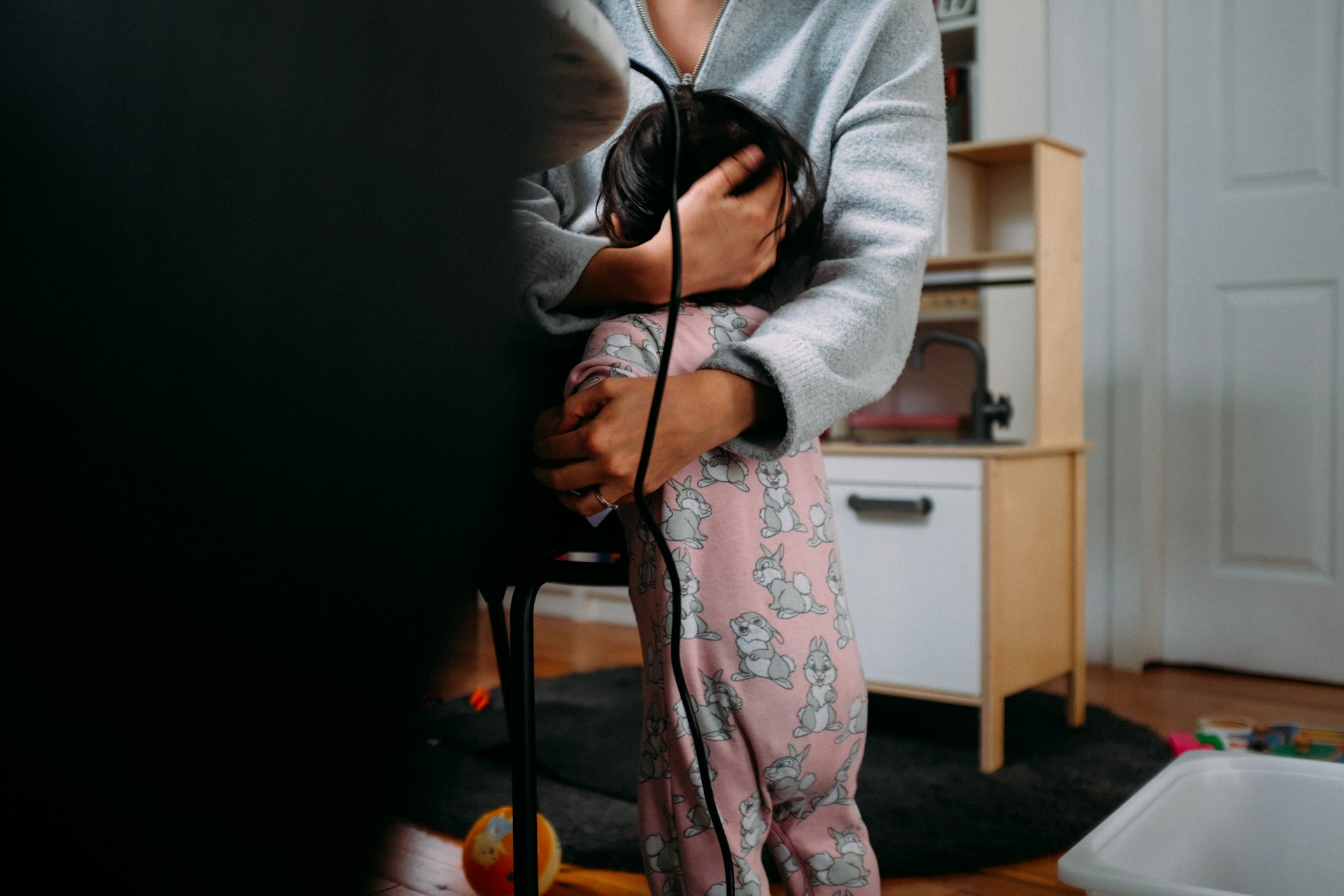If you’re older, do you remember what it was like when you were young? There were things you were still learning and trying to figure out, and the world may have felt like a large, daunting place. Depending on your temperament and personality, this newness of the world and unexplored horizons may have been exciting to you, or it may have felt frightening and anxiety-inducing.
Anxiety in Teenagers
It comes as no surprise to us that teenagers experience anxiety. It’s important to note that some teenagers may experience mild anxiety, while others may experience severe anxiety that’s debilitating. This anxiety may be different from what they experienced when they were younger. It is sometimes a new development as they enter adolescence.
People’s vulnerabilities and worries differ at each stage of their development. That’s why teenage anxiety often looks different from childhood anxiety, even though an anxious teenager may have struggled with anxiety for years by the time they reach adolescence. Younger children’s anxieties tend to focus on external things, while a teenager’s anxiety will focus more on themselves as the object.
For example, a younger child may be afraid of the dark or of monsters under the bed. They may develop a fear of bees or spiders or get anxious at the idea of something happening to their parents. However, a teenager’s anxiety will often focus on the changes happening in their body, how others perceive them, and how they perform in school and extracurricular activities.
Whether a child has struggled with anxiety before or not, as more is expected of them in middle and high school, anxiety can surface. As they develop an awareness and focus on their peers, anxiety can then become more severe such as social anxiety and panic attacks.
While a certain amount of anxiety is normal for teenagers, especially as they are undergoing various physical and emotional changes, sometimes it can become a problem that affects how well the teenager can function in day-to-day life. It’s important to listen to them as they communicate about what they are experiencing.
What are teenagers anxious about?
A teen’s life is a complex web that’s difficult to unravel. Today, teenagers experience a different set of hurdles than in the past with social media and how our world has progressed and changed.
This is why parents, caregivers, and additional supportive adults need to stay connected to them, to be present in their lives to help them navigate the changes and challenges that come with growing up. Some of the things that teenagers get anxious about include the following.
Performance
As pressures increase at school and as teenagers are encouraged to start thinking of their future careers, a lot of anxiety can develop over their performance, whether in academics or extracurricular activities. Teenagers may struggle with perfectionism and the pressure that they need to do their best in school.
Whether or not parents put pressure on them directly, teenagers tend to feel intense pressure to get good grades and do well in several subjects. If a teenager is particularly gifted in a sport, they may also feel intense pressure to do well in their chosen sport as they are thinking about what their future holds.
Perception among peers
 The pressure to fit in and find one’s place in the social ecosystem at school creates vigilance around how they are perceived by their peers. Some kids are more affected by this than others, and the result can be debilitating social anxiety. This is also being experienced at younger and younger ages as technology and social media continue to increase.
The pressure to fit in and find one’s place in the social ecosystem at school creates vigilance around how they are perceived by their peers. Some kids are more affected by this than others, and the result can be debilitating social anxiety. This is also being experienced at younger and younger ages as technology and social media continue to increase.
We’re deeply social and relational creatures, just as the Lord designed us. No one wants to be left out, even as a grown adult. Because of the desire to fit in and not lose social status, a teen may worry excessively about how they are perceived by others.
They could be concerned that they might be seen as stupid or incompetent, or that they might do something embarrassing that follows them throughout the remainder of their school career. They may also worry about losing friends and feeling alone.
Body image
The physical changes in an adolescent can be a source of discomfort and anxiety. If you develop at a different pace than your peers, whether before or after them, that can leave a teenager feeling awkward, standing out in a way that may be perceived negatively by their peers.
For girls, developing ahead of their peers may be perceived negatively, while boys may be sensitive about their height. If a teenager feels that they look vastly different from their peers, it can profoundly impact their self-esteem and confidence. Sometimes a teenager can get so obsessed with a perceived physical flaw that it causes extreme anxiety that affects their ability to function. This is a form of anxiety known as body dysmorphic disorder.
Symptoms of Anxiety in Teenagers
There can be a wide variety of symptoms of anxiety in teenagers, from withdrawal and avoidance to lashing out and being irritable. Often, anxiety in teenagers is overlooked because they can mask their thoughts and feelings, or it can be read as teenage moodiness of the regular sort. However, some behaviors may be signs that a teenager is struggling with anxiety.
A teenager may often be afraid and worried about the routine parts of their everyday life. They may become irritable and easily angered, or they may have trouble concentrating and focusing on a task. A teenager may become extremely self-conscious or hypersensitive to criticism, and they may repeatedly seek assurance about things they are anxious about. A teen may want to withdraw from social activities and may actively avoid them.
Other symptoms include avoiding situations that are new or difficult because they may be particularly challenging for an anxious teenager. An anxious teenager may also repeatedly complain about stomach aches or headaches, and they may have trouble sleeping.
They may share with you about other physical symptoms such as quickening of breath or feeling warm. They may have an unexplained drop in their grades at school or start refusing to go to school altogether.
An anxious teenager is also vulnerable to substance use or abuse as a way of coping. In the short term, they may feel like it is a form of self-medicating, as it can numb anxiety and stress, but in the long term, it is a poor coping mechanism and can lead to dependence on the substances.
Depression and Anxiety
It is common for teenagers who struggle with anxiety to also struggle with depression. This is because an anxious lifestyle can be limiting. It can cause so much stress that it leads to depression. One can, by trying to avoid stressful situations, begin to isolate oneself, and that only serves to feed depression.
The layering of depression and anxiety is common. Though sometimes anxiety can be the cause of depression, in other situations it may be co-occurring but rooted in a separate cause.
Generalized Anxiety Disorder (GAD), which is the persistent and excessive worry about a variety of everyday things, has been linked to depression later in life. Living a life that is shaped by worry and fear can have a profound effect on how you see yourself and your self-esteem and confidence. When a person lives defensively and fearfully, it can lead to depression.
Effective Treatment for Anxiety
The hopeful news is that there are several effective ways of reducing and treating anxiety in teenagers. Some of those treatments include the following:
Self-help and self-care
Anxiety affects your body, mind, and emotions. There are ways of reducing anxiety in the moment, as well as outside of those triggering situations. Getting good sleep and regular exercise helps one better regulate their emotions; reducing consumption of caffeine, sugary substances, and alcohol. Exercises like progressive muscle relaxation, deep breathing, mindfulness, and visualization, can reduce the symptoms of anxiety significantly.
Cognitive behavioral therapy (CBT) is an effective treatment for anxiety. This can be combined, if necessary, with medication. CBT teaches anxious teenagers strategies for thinking differently about anxiety and helps them respond to it differently when it happens.
Exposure therapy
The attempt to avoid sources of anxiety can result in making a person even more anxious. By learning to tolerate anxiety rather than avoiding the things that trigger it, they can learn that the fears diminish over time. Through exposure therapy, by gradually increasing exposure to the activities or objects that trigger fear, anxious responses to certain triggers may be reduced or even eliminated.
Medication
If a teenager’s anxiety makes participating in CBT alone too difficult, medication might be helpful. Speaking to the child’s primary care provider or a psychiatrist about medications and different options would be a helpful step.
If a teen is struggling with anxiety, help is available. There are well-established treatment protocols that can effectively reduce anxiety so that one copes well with life and its challenges. Reach out to our offices today, and we can help you address anxiety and bring it under control. The counselors in our practices are eager to help you live more freely from anxiety.
“Mountain River”, Courtesy of Kazuend, Unsplash.com, CC0 License
-
Kate Motaung: Curator
Kate Motaung is the Senior Writer, Editor, and Content Manager for a multi-state company. She is the author of several books including Letters to Grief, 101 Prayers for Comfort in Difficult Times, and A Place to Land: A Story of Longing and Belonging...
DISCLAIMER: THIS ARTICLE DOES NOT PROVIDE MEDICAL ADVICE
Articles are intended for informational purposes only and do not constitute medical advice; the content is not intended to be a substitute for professional medical advice, diagnosis, or treatment. All opinions expressed by authors and quoted sources are their own and do not necessarily reflect the opinions of the editors, publishers or editorial boards of Stone Oak Christian Counseling. This website does not recommend or endorse any specific tests, physicians, products, procedures, opinions, or other information that may be mentioned on the Site. Reliance on any information provided by this website is solely at your own risk.






